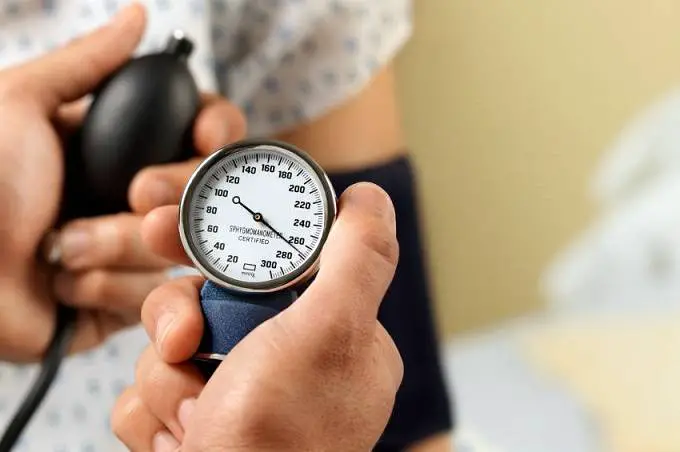Hypertension, commonly known as high blood pressure, is a medical condition common among ageing people, especially seniors (people older than 65).

What Is Hypertension?
When the force of blood pressing against your artery walls (blood pressure) is too high, then over time, it can cause serious damage to your heart and arteries as well as increase your risks to stroke, atherosclerosis (hardening of the arteries and building up of plaque on the walls of the arteries), loss of consciousness, heart attack, and kidney damage.
Hypertension is considered as a “silent killer” because its symptoms do not appear until one’s blood pressure is already too high. In fact, one out of five people with hypertension don’t know that they already have it. You may not be aware that you already have hypertension so it’s a good habit to get your BP checked regularly.
Symptoms of Hypertension
A person with hypertension has blood pressure reading of 140/90 mmHg (systolic/diastolic measurement) or more on a blood pressure gauge. (The normal blood pressure reading for an average adult is 120/80 and below. Consult blood pressure chart for more information.)
High blood pressure can happen without any warning. Usually, there are no accompanying signs or symptoms associated with hypertension. The only known indication is the results of one’s blood pressure reading.
Unlike mild hypertension though, severe hypertension can cause many problems, like:
- nausea,
- headaches,
- vomiting.
Hypertensive crisis, which is a more severe case of high blood pressure, indicates blood pressure that rises rapidly. It often leads to shortness of breath, severe headache, anxiety, and nose-bleeding. It can cause damage to the brain, eyes, heart, or kidneys.
Common Causes of Hypertension
The causes of hypertension are too diverse and it may be difficult for a doctor to pinpoint its cause or causes straight away. The following factors are the most frequent causes of high blood pressure:
- high salt intake
- high fat intake
- obesity
- alcohol consumption
- stress factors
- genetics/ family history of hypertension
- lack of exercise
- low calcium intake
What Are Your Risks?
People older than 45 are more at risk to hypertension or high blood pressure. Men are more prone to hypertension than women, but by the age of 65, more women have hypertension compared to men.
People who are diabetic also have a greater risk as well as people who are African-American. Around 60% of people with diabetes have hypertension, and studies show that African-Americans tend to be more sensitive to salt which often leads to hypertension.
Treatment
Hypertension treatments depend on how high your blood pressure reading is. A doctor may prescribe thiazide-type diuretic medications to lower your blood pressure, but typically, he will suggest a healthy change in your diet and lifestyle.
It is highly advisable to exercise regularly and observe a balanced diet that is low in sodium (salt), sugars, and saturated fats. Also limit your alcohol, nicotine, and caffeine intake.










































[…] of the most common causes of tachycardia (a pulse higher than 100 beats per minutes) is hypertension (high blood pressure), followed by coronary artery disease. Of course, a sedentary lifestyle can […]
146/96
My age 34 female
Sys 146 mmHg, dia96mmHg, pulse 118/min.
[…] suggested that practicing a low-carb diet may be beneficial in the treatment of hyperlipidemia, hypertension and metabolic syndrome, and it can also reduce cardiovascular risk factors […]
[…] You should quit smoking. Smoking contributes to development of many diseases, including heart disease, cerebrovascular disease and might cause hypertension. […]
My mom has a headache and usually her blood pressure is heigh so with medications it’s goes between 155/87 and 111/76 . But tonight her blood pressure was 99/58 and her heart rate was 84
What dose that mean? She is 65 years old